<< Previous | Displaying results 701-725 of 6769 for "" | Next >>
One of seven children, Sarah was raised in a Yiddish-speaking, religious Jewish home in Sokolow Podlaski, a manufacturing town in central Poland with a large Jewish population of some 5,000. Sarah's parents ran a grain business. In 1930, Sarah began attending public elementary school in Sokolow Podlaski. 1933-39: After graduating from middle school in 1937 at the age of 14, Sarah helped out her now widowed mother in the family's grain business. Two years later, Germany attacked Poland. German aircraft…
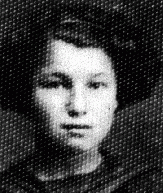
One of six children, Chinka was raised in a Yiddish-speaking, religious Jewish family in the town of Ostrow Mazowiecka, where her father was a wine maker. In 1910 she married Ephraim Isaac Felman, and a few years later the couple moved to Sokolow Podlaski, where Chinka helped her husband run a grain business. The Felmans had seven children, two of whom died in infancy. 1933-39: Chinka's husband died in 1935, and she took over the grain business with the help of her children. That same year, her oldest…
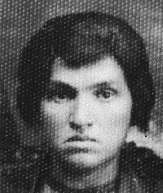
Fischel was the oldest of seven children in a Yiddish-speaking, religious Jewish family. When he was a small child, his parents moved the family to Sokolow Podlaski, a manufacturing town in central Poland with a large Jewish population of about 5,000. Fischel was sent to study at a religious school. In 1932, when he was 21 years old, Fischel was inducted into the Polish army. 1933-39: After two years in the Polish cavalry, Fischel returned to Sokolow Podlaski, where he apprenticed to become a carpenter…
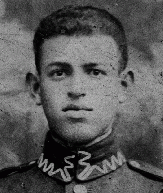
The youngest of seven children, Moishe was raised in a Yiddish-speaking, religious Jewish home in Sokolow Podlaski, a manufacturing town in central Poland with a large Jewish population of some 5,000. Moishe's parents ran a grain business. Moishe attended a Jewish school and began public school in Sokolow Podlaski in 1933. 1933-39: Summer vacation had just finished and 13-year-old Moishe was about to begin another year at elementary school when the Germans invaded Poland on September 1, 1939. German…
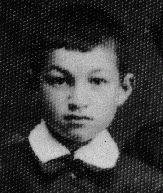
Genya and her brother, Nahum, were raised by Jewish parents in Lodz, Poland's second-largest city and an industrial center. Before the war, one-third of Lodz's inhabitants were Jewish. Genya's parents placed emphasis on their children's education. 1933-39: In 1939, when Genya was 9, the Germans occupied Lodz. After that, it was forbidden for "Jews, Gypsies and dogs" to be in public places. Since Jews weren't allowed to go to school, her parents arranged to tutor her secretly at home, but she couldn't keep…
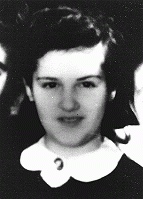
Adela, known as Udl to her family, was one of four children born to a Jewish family in the Polish town of Ulanow. Her father was a landowner and cattle merchant, transporting calves from the Ulanow area for sale in other towns in the region. From the age of 3, Adela attended a private religious school for girls where she learned Jewish history and Hebrew. At age 7 she began public school. 1933-39: Adela came from a charitable family; when her mother baked challah, a special bread for the Jewish Sabbath,…
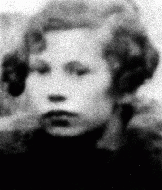
Dezider was the oldest of three children born to Hungarian-speaking Jewish parents in the city of Kosice in the southeastern part of Czechoslovakia known as Slovakia. As a young boy, he attended a Jewish elementary school. His father was a tailor whose workshop was in the Gruenberger's small apartment. 1933-39: After Dezider finished elementary school, he entered secondary school with a view to going on to the university. The language of instruction was Slovak, and Jews faced no discrimination until…
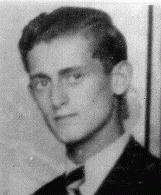
Edit was the second of three children born to Hungarian-speaking Jewish parents in the city of Kosice in the southeastern part of Czechoslovakia known as Slovakia. She grew up a Czechoslovak citizen. As a young girl, she attended a Jewish elementary school. Her father was a tailor whose workshop was in the Gruenbergers' apartment. 1933-39: After Edit finished elementary school, she entered secondary school. The language of instruction was Slovak and Jews faced no discrimination until November 1938 when…
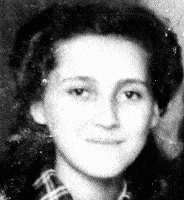
Herschel was the oldest of four children born to a Jewish family in the Polish town of Ulanow. His father was a landowner and cattle merchant who transported calves from the Ulanow area for sale in other towns. Herschel attended a religious school from the age of 3, and started public school at age 7. 1933-39: Since Herschel was skilled with his hands, his father got him a job weaving reed baskets after he graduated from high school. Herschel was also a member of a Jewish youth organization, Benei Akiva,…
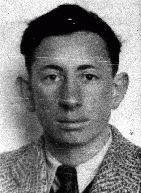
Raised by Yiddish-speaking, religious Jewish parents in the town of Pultusk in central Poland, Shmuel married in the late 1890s and moved with his wife, Gisha, to the city of Warsaw. Shmuel owned and operated a bakery on Zamenhofa Street. In 1920 the Bursztyns and their eight children moved to larger quarters in a two-bedroom apartment at 47 Mila Street in the Jewish section of the city. 1933-39: By 1939 six of Shmuel's children were grown and on their own. Only his youngest son and daughter still lived…
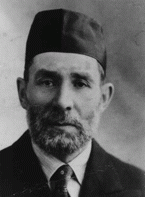
Gucia was born to middle-class Jewish parents in Radom, an industrial city known for its armaments factory, in which Jews were not allowed to work, and for a leather industry, in which many Jews were employed. Radom had a large and active Jewish community, and at home Gucia's family spoke both Polish and Yiddish. Gucia completed her schooling in Radom. 1933-39: As a young woman, Gucia was introduced to Benjamin Frydmacher, a young Jewish tanner from Lublin who occasionally came to Radom to visit his…
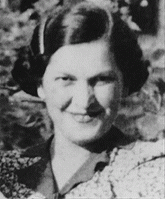
Jeno was born into a large, religious Jewish family in the village of Nagyhalasz in northeastern Hungary. The Briegers spoke Yiddish and Hungarian. After Jeno's mother died, his father remarried and the family moved to the town of Nyiregyhaza where his father owned and operated a hardware store. Nyiregyhaza had a Jewish population of 5,000. 1933-39: Jeno was the oldest son in a household of seven children. Nyiregyhaza was a rural town in which people still used horses and buggies. Jeno attended a…
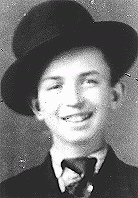
Gyula was also known as Gyuszi. He was born into a large religious Jewish family in the village of Nagyhalasz in northeastern Hungary. The Briegers spoke both Yiddish and Hungarian. After Gyula's mother died, his father remarried and the family moved to the town of Nyiregyhaza, where his father owned and operated a hardware store. Nyiregyhaza had a Jewish population of 5,000. 1933-39: Gyula was the second oldest son in a household of seven children. Nyiregyhaza was a rural town in which people still used…
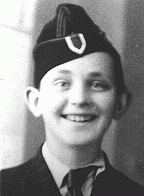
Alice was the third of six children born to Jewish parents in the small Moravian town of Hodonin, where her father ran a dry goods and clothing store. The family spoke both Czech and German at home, and Alice attended a German-language secondary school. After graduating, she married her teenage sweetheart, Otto Seelenfried, who was a chemical engineer. 1933-39: Alice and Otto moved to the town of Jihlava. In 1934 Otto died from a ruptured appendix, and Alice returned to live with her parents in Hodonin.…
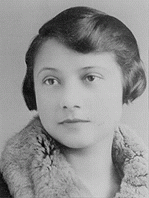
Bernard was one of seven children born to a German-speaking, Jewish family in the small Moravian town of Mikulov in the central part of Czechoslovakia. The family later moved to the town of Hodonin where Bernard opened a dry-goods and clothing store. In 1899 he married Berta Koselova, and the couple had six children. During World War I Bernard served in the Austro-Hungarian army. 1933-39: In 1938 Bernard retired, and since none of his sons wanted to take over the business, Bernard sold it. He, his wife,…
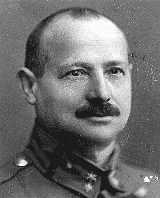
Berta was born to a Jewish family. Orphaned when she was a child, she was raised by her Uncle Poldi in Vienna. In 1899 she married Bernard Krakauer, a Jewish businessman from her hometown of Mikulov. As was the custom for orphans, Berta wore a black dress at her wedding. The couple settled in the town of Hodonin, where Bernard opened a dry goods and clothing store. They raised six children. 1933-39: With their children grown, Berta's husband retired in 1938. He sold the business and moved with Berta and…
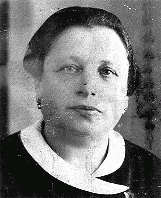
Felix was one of six children born to Jewish parents in a small Moravian town, where his father ran a dry goods and clothing store. The family spoke Czech and German at home and Felix attended German-language schools. As a youth, he belonged to a Zionist club and liked to ski. He graduated from an international trade school in Vienna before settling down in the Moravian capital of Brno. 1933-39: During the 1930s Felix married a Christian woman from the town of Hodonin. When Felix's father retired in 1938,…
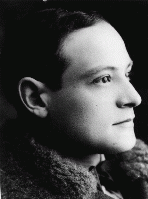
Max was the oldest of six children born to Jewish parents in the small Moravian town of Hodonin, where his father ran a dry-goods and clothing store. His family spoke both Czech and German at home, and Max attended German-language schools in Hodonin and Lipnik. He completed his education in 1920. Born with a heart condition, Max lived a sheltered life. 1933-39: Max's father, Bernard, was getting on in years and wanted to retire. Max was not strong enough to take over the business, so the Krakauers sold…
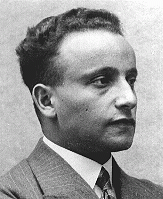
Alfred was the fifth of six children born to Jewish parents in a small town in Moravia, where his father ran a dry-goods and clothing store. The Krakauers spoke both Czech and German at home. In 1929 and 1930, after graduating from secondary school, Alfred served in the Czechoslovakian army. He enjoyed skiing and also played soccer for the Maccabi Jewish team. 1933-39: Alfred graduated in 1934 from Prague's Industrial School for Art. He became a graphic artist and decided to remain in Prague because of…
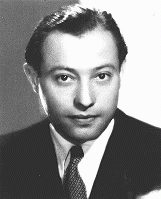
Hilda was the youngest of six children born to Jewish parents in a small Moravian town, where her father ran a dry-goods and clothing store. Her family spoke both Czech and German at home. Hilda was a tomboy when she was growing up, and competed on the Maccabi swim team. She attended a public secondary school in Hodinin, and wanted to pursue a career as a dental technician. 1933-39: In February 1933 Hilda moved to the Moravian capital of Brno where she attended dental school. On December 23, 1935, she…
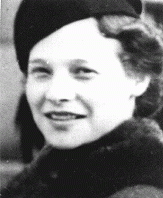
Leo was one of two children born to Jewish parents in the Moravian capital of Brno. When Leo was a child his father died, and Leo and his sister, Edita, were raised by their German-born mother. On November 27, 1931, Leo graduated with a law degree from Brno University. 1933-39: After courting Hilda Krakauerova, a dental technician, Leo married her on December 23, 1935. Leo served as a district judge in Brno and in the town of Postejov, and in 1938 he was appointed judge and secretary to the Moravian…
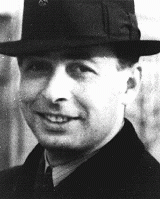
Robert was the second of three children born to Jewish parents in the Moravian capital of Brno, where his father ran a shipping company. Between 1909 and 1920 Robert lived with his widowed grandmother, who resided nearby. He completed secondary school in 1922, and then attended an international trade school in Vienna. Robert earned a doctorate in law from Charles University in Prague in 1930. 1933-39: After apprenticing as a lawyer for five years, Robert finally opened his own practice in Brno in January…

Moishe was one of three sons born to Yiddish-speaking Jewish parents in Radom. This industrial city was known for its armaments factories, in which Jews were not allowed to work even though they totaled more than one-fourth of the city's population. When Moishe was young, he left school to apprentice as a women's tailor and eventually became a licensed tailor. He also played soccer for a local team. 1933-39: In 1937 Moishe, by then a master tailor, married another tailor's daughter. The couple had two…
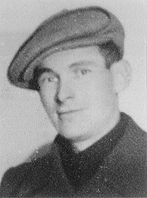
Taube, also known as Tola, was born to a Yiddish-speaking Jewish family. Her father worked as a tailor, and a wealthy uncle in Germany helped to support the large family. After finishing public school, Taube trained to be an embroiderer. She fell in love with Itzik Rosenblat, a young man who had first apprenticed with her father in 1925 when Taube was 8 years old. 1933-39: In 1938, after a 13-year courtship much opposed by her family, Taube married Itzik without getting her dowry. The couple lived in an…
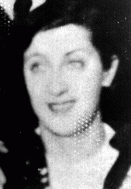
Irena was the second of four children born to religious Roman Catholic parents in Poland's capital of Warsaw. Irena's father owned a successful textile business. When Irena was 10, her family moved to a comfortable apartment near the Royal Castle and the Vistula River. In 1930 Irena entered a private grade school. 1933-39: At 14 Irena began secondary school. She was a good student and wanted to be a doctor. On September 1, 1939, the day she was supposed to begin the new school year, the Germans attacked…
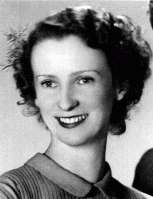
We would like to thank Crown Family Philanthropies, Abe and Ida Cooper Foundation, the Claims Conference, EVZ, and BMF for supporting the ongoing work to create content and resources for the Holocaust Encyclopedia. View the list of donor acknowledgement.